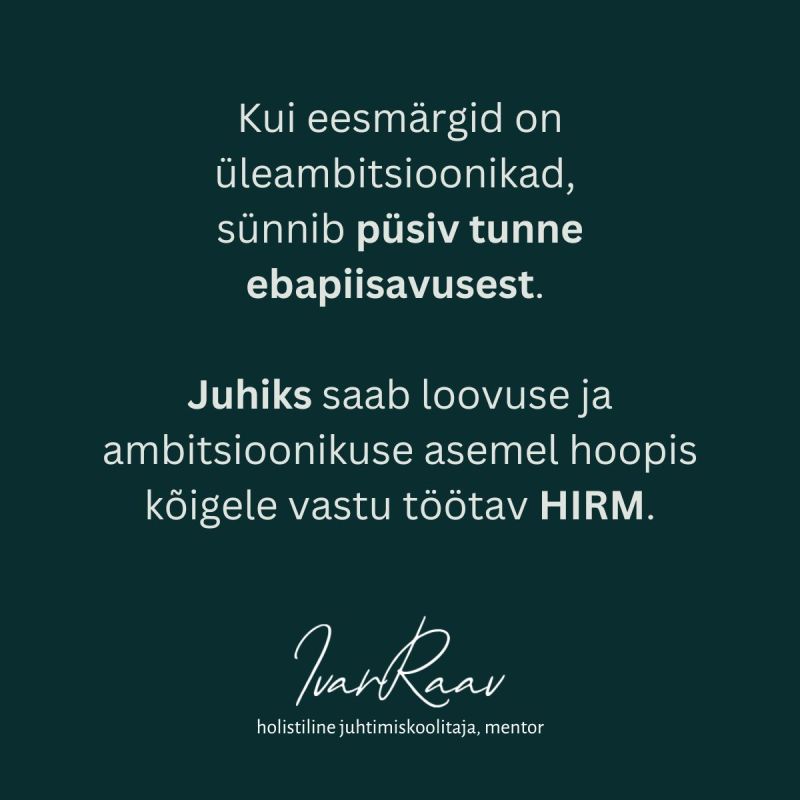OKR (Objectives and Key Results) principles have recently been actively replacing KPI and other performance management systems in organisations.
For those who are not familiar, a brief overview of the OKR framework:
🧰 Objective – an inspiring and qualitative goal to reach
🧰 Key Results – measurable steps that show the achievement of the objectives
🧰 Ambition – the goal must always be a stretch goal, which means that meeting 70% is already a “good result”
🧰 Cyclicality – assessed regularly, usually quarterly
🧰 Transparency – OKRs are visible throughout the organisation to create a sense of shared responsibility
Sounds clear and structured. But …
The most problematic thing, besides the fact that a human being is a conversion machine according to OKR (and similar methodologies), is this sentence: “Let the target be so ambitious that meeting 70% of it is already a good result.”
If the goal is not meant to be fully achieved, the psychology and the non-mechanical part of the human comes in. Namely, the persistent feeling of inadequacy:
👉 You never really finish
👉 You’re always a bit inadequate and something is missing
👉 You’re judged by how much more you can do, not by who you are and how the trend is moving in your self-discovery.
It brings not only inadequacy, but also a subconscious fear of abandonment that goes hand in hand with a feeling of inadequacy – a feeling that I will never really live up to expectations.
If the “human man” is constantly kept in the future, a culture of living in the future and chasing results will emerge, rather than being present. The simple definition of anxiety is: fear of the future. Perhaps leading is fear, not creativity.
And if the management model is based on living in the future, it is no wonder that anxiety disorders and burnout have become the “new normal” of our times. But maybe it’s just my violent interpretation that we have a problem 😎
A manager always manages more than targets and numbers. A leader drives mood, atmosphere and meaning. If these are absent, the results will be empty, because the places in the machinery that people are supposed to fill will be empty.
❓Is the constant cultivation of inadequacy really the best way to lead?
What could be the alternatives that create both meaning and sustainability?
👉 Meaning-driven leadership – goals are not just for growth, but answer the question ‘why does this really matter to me in my heart?’.’
👉 A culture of psychological safety – the measure is not just the outcome, but whether I have the right to experiment, to be wrong and to learn, which is at the heart of creativity.
👉 A systemic view – not just individual effort, but the integrity of the invisible patterns and relationships of the whole organisation and its sense of community to support creativity.
What else? Share, because alternatives are much needed!

